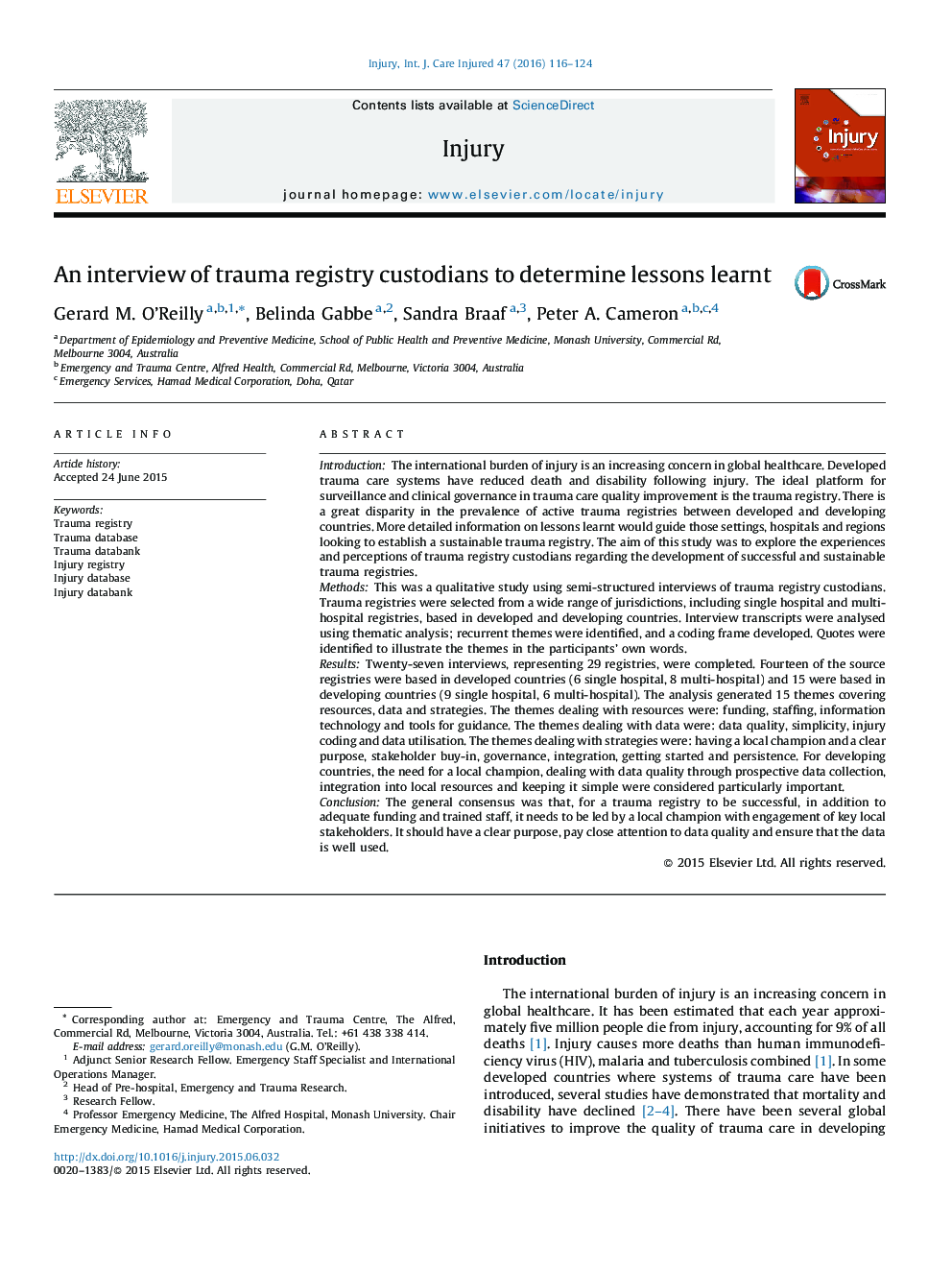| Article ID | Journal | Published Year | Pages | File Type |
|---|---|---|---|---|
| 6082881 | Injury | 2016 | 9 Pages |
IntroductionThe international burden of injury is an increasing concern in global healthcare. Developed trauma care systems have reduced death and disability following injury. The ideal platform for surveillance and clinical governance in trauma care quality improvement is the trauma registry. There is a great disparity in the prevalence of active trauma registries between developed and developing countries. More detailed information on lessons learnt would guide those settings, hospitals and regions looking to establish a sustainable trauma registry. The aim of this study was to explore the experiences and perceptions of trauma registry custodians regarding the development of successful and sustainable trauma registries.MethodsThis was a qualitative study using semi-structured interviews of trauma registry custodians. Trauma registries were selected from a wide range of jurisdictions, including single hospital and multi-hospital registries, based in developed and developing countries. Interview transcripts were analysed using thematic analysis; recurrent themes were identified, and a coding frame developed. Quotes were identified to illustrate the themes in the participants' own words.ResultsTwenty-seven interviews, representing 29 registries, were completed. Fourteen of the source registries were based in developed countries (6 single hospital, 8 multi-hospital) and 15 were based in developing countries (9 single hospital, 6 multi-hospital). The analysis generated 15 themes covering resources, data and strategies. The themes dealing with resources were: funding, staffing, information technology and tools for guidance. The themes dealing with data were: data quality, simplicity, injury coding and data utilisation. The themes dealing with strategies were: having a local champion and a clear purpose, stakeholder buy-in, governance, integration, getting started and persistence. For developing countries, the need for a local champion, dealing with data quality through prospective data collection, integration into local resources and keeping it simple were considered particularly important.ConclusionThe general consensus was that, for a trauma registry to be successful, in addition to adequate funding and trained staff, it needs to be led by a local champion with engagement of key local stakeholders. It should have a clear purpose, pay close attention to data quality and ensure that the data is well used.
